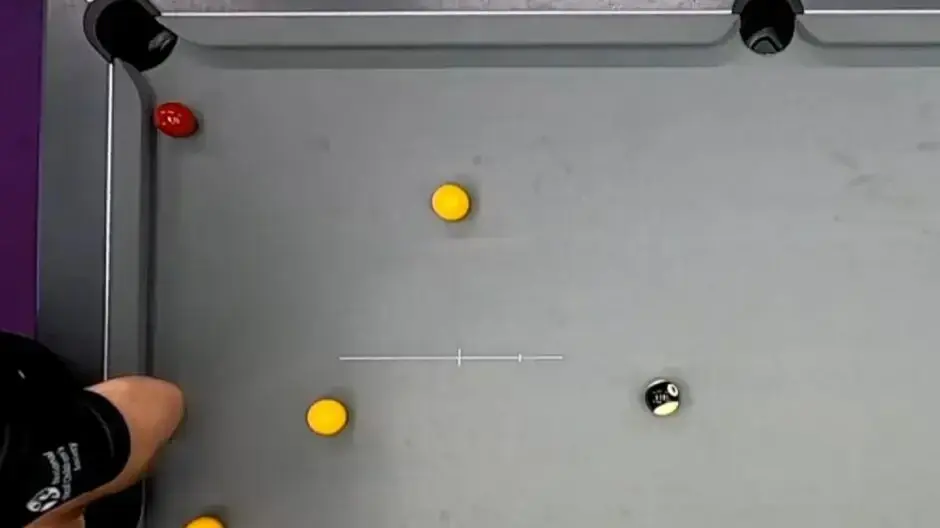Mourning for Herbert Achternbusch: The quiet end of a lute
Created: 01/13/2022Updated: 01/13/2022 18:32
By: Simone Dattenberger
A Bavarian genius: Herbert Achternbusch (1938-2022).
© Effigie/Leemage/Picture Alliance
It had been quiet around him for a long time.
The Munich filmmaker, writer, painter and actor Herbert Achternbusch has died at the age of 83.
Our obituary:
The Munich filmmaker, writer, painter and actor Herbert Achternbusch has disappeared, as the Bavarian says, from our midst, from our cultural life.
Now he has left us completely at the age of 83.
This quietening seemed particularly strange, because "the aft bush" always knew how to be loud: rebellious, nonconformist, cheeky, grumpy, revolutionary and sometimes unabashedly hurtful.
At some point in the 2010s, that jackass energy that came with his irrepressible creative power had probably drained away.
Herbert Achternbusch was born in Munich in 1938
Anyone who was younger and heard something from him from time to time, "Susn" at the Kammerspiele or "Dogtown Munich" at the Volkstheater, could not imagine that there were periods of rapid productivity with him.
A play was released every year and felt even more films.
Even battle-hardened critic legend Ponkie, who died December 30, was impressed.
At a press screening, probably of "I know the Way to the Hofbrauhaus", she proudly whispered in the ear of the author of these lines that she had seen every (!) Achternbusch film so far.
Achternbusch studied art in Munich and Nuremberg
The graceful man was passionate about his art and yet seemed to design worlds as effortlessly as a playing child. Worlds that certainly had something to do with our reality, yet expanded into weird, dazzling, bizarre, sarcastic, even "only" beautiful spheres. At the same time, Achternbusch didn't give a damn about the usual feature film or drama forms. Likewise, whether the audience followed him or not.
At the center of the works was mostly being lost in one's own, but actually familiar surroundings and being alone despite friendship and love.
In an interview with our newspaper, Herbert Achternbusch summed it up like this: "My films don't have the theme of homelessness, they are homeless." The bizarre stories, (play) scenes, actor and camera work and his own acting were so sensitive and clairvoyant and tolerant was his depiction of human beings.
Then the rant disappeared behind the wisdom and cheerfulness of a great artist.
The latter was allowed to fully unfold in his colourful, narrative images.
They are global stories from a thousand and one Bavarian nights.
Full of references, full of eroticism, full of mysteries.
In 1969, Achternbusch started working as an author at Suhrkamp Verlag
Born in Munich on November 23, 1938, Achternbusch grew up in the Bavarian Forest.
After graduating from high school and pedagogical college, he went to the art academies in Munich and Nuremberg and started in 1969 – take note!
– as a literary talent at Suhrkamp Verlag (“cigarette seller”, “Das Kamel”).
The 1971 novel The Alexander Battle was highly regarded.
However, Achternbusch liked to unexpectedly beat those who promoted him.
At the end of the 1970s, it was the burning of a check at the Petrarch award ceremony.
In the late 1990s he insulted the Kammerspiele ensemble of the Dieter Dorn era, which had lovingly realized many of his plays: including "Mein Herbert" and "Gust" in the 1980s, the Wende comedy "Auf Lost Posten" and that subtle relationship game "The boot and his sock" in the nineties.
On the other hand, this jackass devil's irascibility provided for Achternbusch's resilience and willingness to take risks. And the man from Munich needed that when filming. In the cinema sat and sits an audience that expects something more drinkable. "The Andechser Feeling" (1974) was not at all, despite the beer pilgrimage site. No wonder Werner Herzog brought in Achternbusch (screenplay) and Josef Bierbichler (Hias) for his “Heart of Glass” in 1976. Achternbusch also used his desire for danger, for teasing others, in his confrontation with the Shoah (“The Last Hole”, 1981, “Healed Hitler”, 1986) and bigotry (“The Ghost”, 1982). This work, a wise and comic reflection on how we relate to the figure of Christ, provoked violent protests.The prize money awarded for the silver film ("The Last Hole") was even withheld by the Interior Minister at the time, Friedrich Zimmermann (CSU). Subsidies were still missing. In the interview, Achternbusch emphasized: “I didn’t want to provoke anyone with the films either. I wanted them to like me. But that's the only way I can work. Even if I tried something else, it doesn't work."
Achternbusch: in the Olympus of Bavarian geniuses
Especially in his artistic and private relationship with Josef Bierbichler and his sister Annamirl, Herbert Achternbusch developed his (anti) sense of home at a young age.
When he then “gave a Ruah”, the father of six children perhaps found his inner home.
In any case, he had already entered the Olympus of Bavarian geniuses.















